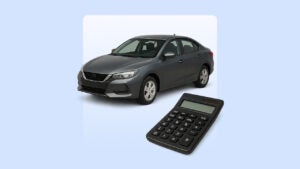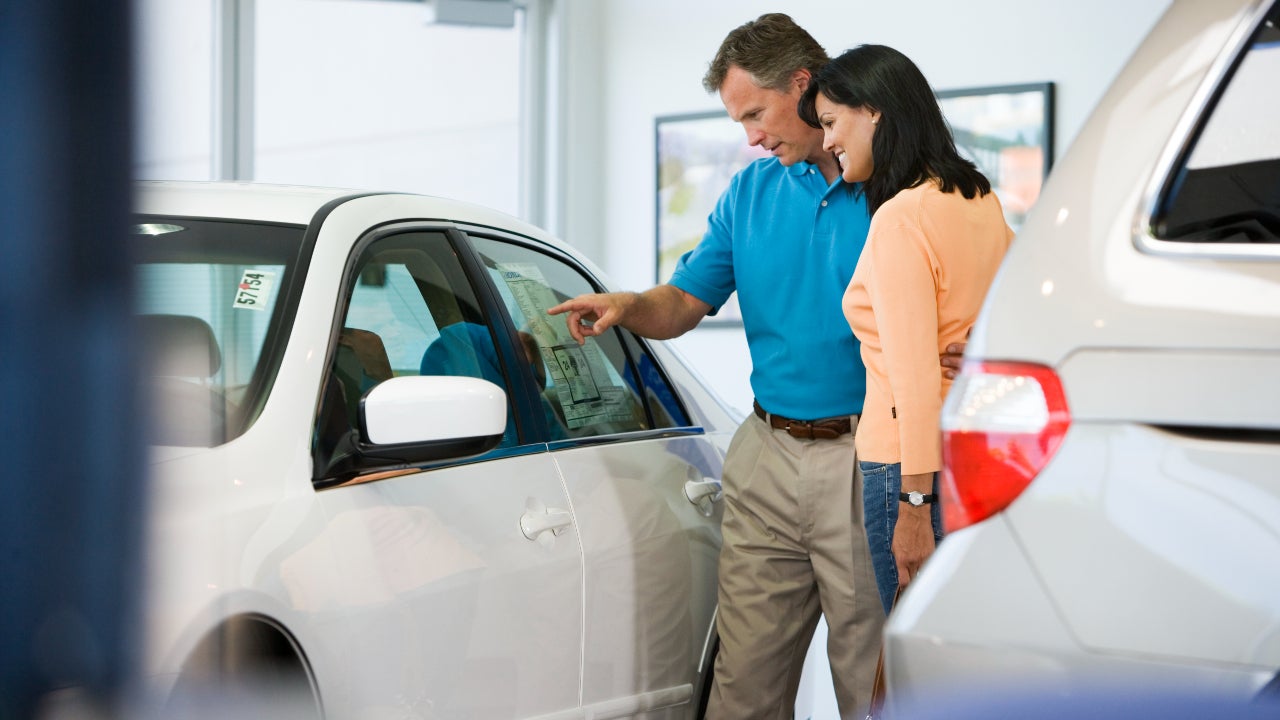How to take over car payments on a used vehicle

Key takeaways
- The loan assumption process can be more complex than a standard auto loan process, so research your options before deciding if it's the best choice.
- Review the original loan thoroughly and ask the lender any questions before applying to assume the loan
- Make sure the vehicle is worth what you’re paying, and gather your supporting documents to streamline the process.
If you don’t have the cash to purchase a used vehicle from a private seller outright, you could take over car payments on their loan through the loan assumption process. However, taking over payments on an auto loan is more complicated than just getting your own loan, and it may not always be an option.
Instead, you may want to consider an auto loan for private purchases. If you want to assume someone else’s car loan, you must apply with their current lender. Checking out other lenders at the same time could help you — and the seller — come to a better deal.
Steps for taking over a car loan when buying a used car
Before taking over a car loan, be sure it’s the right option for you. You will have to go through the original lender and the potential seller to close the deal. Research both the car and the loan terms ahead of time to make an informed decision.
1. Meet with the seller in person
Buying a car from a private seller may come with extra steps, especially when you want to take over their loan. Keep safety in mind when you set up a face-to-face meeting. Coordinate to meet in public and bring someone you trust along.
As with any car, you should thoroughly inspect the vehicle yourself and have it inspected by a mechanic you trust. Confirming the seller’s information and learning more about the loan you are taking over is essential to making an informed decision.
2. Have the current owner talk to their lender
The seller will need to contact their lender and confirm that you can take over payments. If the lender allows it, you will also need to apply so the lender can confirm you have the ability to make payments on the loan.
However, some loan contracts have a clause that prevents loan assumptions or transfers. If taking over payments isn’t possible, you can take out a private auto loan and work with your lender to coordinate the payoff. You can also pay cash if you have enough to cover the loan balance and any associated fees and taxes.
3. Request a copy of the original contract
Ask the owner to bring a copy of the original contract or request a copy directly from the lender. Read it thoroughly to ensure you completely understand all of the details of the loan. Look for fees and other potential costs associated with assuming the loan. If anything is unclear, contact the lender directly to ask questions.
While reviewing the contract, keep in mind that you aren’t guaranteed to get the exact same terms. Even if you qualify, the lender may quote you a higher interest rate or a longer loan term based on its assessment of your risk factors.
4. Prepare your supporting documents
In order to take over a car loan, you will need to apply with the seller’s lender. Essentially, it is just like any other new or used car loan application. You will need to provide proof of your income and information about yourself alongside other common documents required for car loans.
Coordinate with the seller ahead of time to ensure they have a letter of assignment — or bill of sale — ready. Since they are selling the car, they must prepare this document. You, the seller, and the lender work together to handle the other official documents, like a title transfer.
5. Apply with the lender
The lender will need to confirm that you qualify by checking your credit score and other aspects of your finances. You will need to compare auto loan rates and then submit an application, similar to applying for any other car loan.
While many aspects of the negotiation process don’t apply to loan assumption, you should still double-check that the loan is worth your time. If the car is being sold for a higher price than what is left on the loan, ask why — and see if the seller will lower it so you don’t have to take on additional debt.
If you don’t like the terms offered by the lender once you apply, you can always try to get a loan from a different lender. Private auto loans aren’t uncommon, so you may be able to qualify for a loan without having to take over payments on the seller’s current loan.
Questions to ask before deciding to take over a car loan
Taking over a car loan can be risky for both you and the lender, so it isn’t a common option. Be cautious if you choose to assume someone else’s loan. And most importantly, confirm that the car is worth what the seller is asking before you commit.
Can you afford the payments?
If you are taking over a car loan, you need to make sure that the balance is affordable for you. If the seller owes $20,000 and is selling the car for $25,000, you will be taking over the full balance of the loan plus $5,000.
You will need to coordinate borrowing the additional cost with the lender and be sure you can budget for the larger monthly payment. Alternatively, you’ll need to have the extra $5,000 on hand to pay in cash.
Is the car worth the loan payment?
Before you decide to take over the loan payments on a car, you need to make sure that you are getting a car that is worth the money. Check sources like Kelley Blue Book and Edmunds to see the current market value of the car.
If the loan’s balance is higher than the car’s value, the seller may be upside-down on their loan. If that’s the case, it would be better to find a different vehicle. After all, you don’t want to take on a loan that will cost you more than the car is worth.
Will you be able to keep the car long enough to pay off the loan?
If you decide to take over the loan payments, you need to make sure that you can keep the car for the number of years required by the original contract. In some cases, this could be more than five years, so you need to make sure that you will have the ability to pay off the loan without running into any issues.
If you can’t keep the car for that long, you could be stuck selling with a lien on the car.
When it may make sense
While there are easier ways to purchase a used vehicle, sometimes taking over someone else’s car payments is your best option. Here are some times when this may be a good idea:
- You don’t have the cash needed to buy the vehicle you need
- You are able to afford the monthly loan payments that come with assuming the seller’s loan
- The vehicle is a good option, but the seller can’t afford to keep it
When deciding on how you buy a used car, weigh the pros and cons before deciding what to do.
The bottom line
Taking over payments on a car loan requires extra work, but it’s possible if that’s your best option. Provided you qualify and are able to handle the more intensive process, you could potentially get a good deal on the car you want.
However, not all lenders allow auto loan assumptions. You still need to apply for the loan. And even if you don’t need a down payment, you will be responsible for the terms the lender gives you, including the set payment schedule and any fees the lender charges.
Why we ask for feedback Your feedback helps us improve our content and services. It takes less than a minute to complete.
Your responses are anonymous and will only be used for improving our website.
You may also like

How to refinance a car loan with bad credit

Car loan modification: How it works





